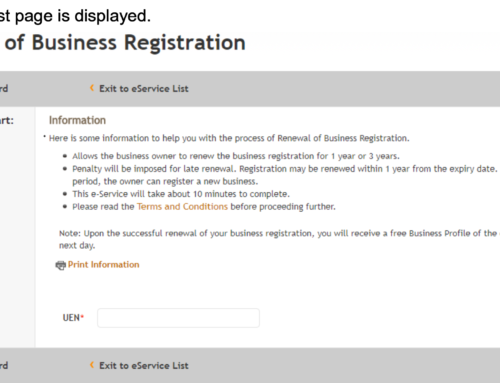Corporate accounting is the name of a process that involves gathering, organising, classifying, and reporting the financial information of a business in a way that complies with the regulatory framework of Singapore (or any other country). This method is also used for informing the company’s stakeholders about the business’ financial health and its performance.
The Scope of Corporate Accounting
There are essentially two approaches involved in understanding corporate accounting from the perspective of day to day business. First, corporate accounting refers to the process of managing a single company’s accounting information.
On the other hand, the term corporate accounting also refers to, on occasion, the activities carried on by an individual department organised by a holding company, a large corporation or a conglomerate that operates many different legal entities and requires individual bookkeeping and reporting activities for each of these businesses.
In Singapore, corporate accounting is regulated by the Singapore Financial Reporting Standards (SFRS). These standards provide guidelines that accountants must follow to maintain accurate financial records and produce financial reports that are in line with the best practices of the industry. These standards are listed in the International Financial Reporting Standards (IFRS) issued by the International Accounting Standards Board (the global reference for corporate accounting practices).
Which Are the Most Common Activities Involved in Corporate Accounting
The core processes involved in corporate accounting are the following:
Bookkeeping
This process involves gathering raw data coming from regular operations. Its purpose is to organise and classify information to later on record it on the company’s accounting system.
This is the most basic step of corporate accounting, but that doesn’t mean is not a complex one. The person treating and recording the information must understand the core concepts of accounting to accurately classify and register the transactions. This is key to maintaining correct financial records that actually reflect the business situation at any given point in time.
Taxation
Corporate accounting also deals with the obligations imposed by the government and regulatory agencies in terms of taxes. Corporate accountants employ the information gathered and organised through the bookkeeping process to calculate any taxes that the company must pay, according to certain schedules provided by regulators.
Reporting
The ultimate goal of corporate accounting is to produce accurate and reliable reports that can be employed by internal users, such as the company’s senior management, to make informed decisions about the direction of the company.
These reports are not limited to traditional financial statements, as they could also show information about individual accounts or transactions made with vendors, employees, suppliers, and financial institutions, among others.
Other Activities Associated to Corporate Accounting
While these are the most frequent activities associated with corporate accounting, on some occasions the scope of this practice can be wider than usual to include other assignments such as:
- Payroll Management
- Collections & Account Receivables
- Accounts Payable
- Budgeting
Corporate Accounting for Small Business Entities (SMEs)
Considering the fact that small and medium-sized businesses have limited resources compared to large corporations, the Accounting Standards Council (ASC) of Singapore decided to issue a separate set of standards for SMEs that they could easily adhere to. The purpose is to promote financial transparency among SMEs through a set of guidelines that can be adopted without significant organisational costs.












Leave A Comment